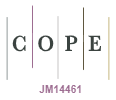The paulista curriculum (2020) as ontological architecture
a freirean critical analysis of the paradigms of being in the São Paulo curriculum
DOI:
https://doi.org/10.5585/eccos.n69.25438Keywords:
the paulista curriculum, ideology, deconstructing Paulo Freire, ontology, to be moreAbstract
This article aims to analyze the ontological construction implicit in the Currículo Paulista (2020) and its intentions. Starting from the conception of the curriculum as a field of disputes that impact the ontological formation of social beings, it is worth asking: which ontological conception does the Currículo Paulista (2020) propose to develop? To answer the question, qualitative research methodology was used with document analysis, taking the critical study of Norman Fairclough's speech, (2001) as a tool for understanding documents as a materialization of social, historical and ideological conflicts. In this way, we started with Michael Apple's (2006) conception of the curriculum as a field of ideological disputes and Paulo Freire's (2019) with the ontology of “being more” to understand the impacts of the neoliberal discourse on the ontological formation of São Paulo students. It was concluded, therefore, that the ontology developed throughout the Currículo Paulista (2020) document is strongly committed to the formation of social beings adjusted to capital for the market, with the ideology of “entrepreneurship” as a central element for ontological formation of students as “self-entrepreneurs”. Thus, the official curriculum document operates as an ideological instrument in training, constituting an “ontological architecture”.
Downloads
References
ADORNO & HORKHEIMER. Dialética do Esclarecimento. Rio de Janeiro: Ed. Zahar, 2014.
ALTHUSSER, L. Aparelhos ideológicos do Estado. Rio de Janeiro: Paz e Terra, 2022.
ANTUNES, R. O privilégio da servidão: o novo proletariado de serviços na era digital. São Paulo: Boitempo, 2018.
APPLE, M. Ideologia e currículo. Porto Alegre: Artmed, 2006.
APPLE, M. Educação e Poder. Porto: Porto Ed, 2001.
APPLE, M. Políticas culturais e educação. Porto, Portugal: Porto Ed., 1999.
APPLE, M. A política do conhecimento oficial: faz sentido a ideia de um currículo nacional? In: MOREIRA, A. F. e SILVA, T. T. (ORGS.). Currículo, cultura e sociedade. São Paulo: Cortez Ed., 2013.
BENJAMIN, W. Magia e técnica, arte e política. São Paulo: Ed. Brasiliense, 1993.
BRASIL. Ministério da Educação. Base Nacional Comum Curricular. Brasília: MEC, 2015. Disponível em: http://basenacionalcomum.mec.gov.br/historico/. Acesso em: 10 abr. 2020.
CHAUÍ, M. A ideologia da competência. Belo Horizonte: Autêntica Ed. São Paulo: Ed. Fundação Perseu Abramo, 2014.
CHAUÍ, M. Anacronismo e Irrupción, Vol. 10, N° 18 (Mayo - Octubre 2020): 307-328.
CHAUÍ, M. Conferência Comunicação e Democracia. PT. São Paulo. Disponível em: http://www.pt.org.br/marilenachaui-comunicacao-e-democracia/. Acesso em: 20 de jun. de 2023.
FAIRCLOUGH, N. Discurso e mudança social. Brasília: Ed. UNB, 2001.
FOUCAULT, M. O Nascimento da biopolítica: Curso no Collège de France (1978-1979). São Paulo: Martins Fontes, 2008.
FREITAS, L. C. A reforma empresarial da educação: nova direita, velhas ideias. São Paulo: Expressão Popular, 2018.
FREIRE, P. Pedagogia do oprimido. 69. ed. Rio de Janeiro: Paz e Terra, 2019.
KOSIK, K. Dialética do concreto. Rio de Janeiro: Paz e Terra, 1995.
LAVAL, C; DARDOT, P. A nova razão do mundo: ensaio sobre a sociedade neoliberal. São Paulo: Boitempo, 2016.
LOPES, A. C.; MACEDO, E. Teorias De Currículo. São Paulo: Cortez, 2011.
LUDKE, M.; ANDRÉ, M. PESQUISA EM EDUCAÇÃO: Abordagens qualitativas. São Paulo: EPU, 1986.
LUKÁCS, G. Para uma ontologia do ser social I. São Paulo: Boitempo, 2018.
LUKÁCS, G. Para uma ontologia do ser social II. São Paulo: Boitempo, 2013.
MARCUSE, H. A ideologia da sociedade industrial – O homem unidimensional. Rio de Janeiro: Zahar, 1973.
MARX, K; ENGELS, F. A ideologia alemã: Crítica da mais recente filosofia alemã em seus representantes Feuerbach, B. Bauer e Stirner, e do socialismo alemão em seus diferentes profetas. São Paulo: Boitempo, 2007.
MARX, K; ENGELS, F. Manifesto do partido comunista. São Paulo: Boitempo, 2005, p. 40.
MARX, Karl. O capital: crítica da economia política. Livro I: o processo de produção do capital. São Paulo: Boitempo, 2013.
MARX, K. Manifesto do partido comunista. São Paulo: Boitempo, 2005.
MARX, K. Para a crítica da economia política; Salário Preço e lucro; O rendimento e suas fontes: a economia vulgar. São Paulo: Abril Cultural, 1982 (Os economistas).
SAFATLE, V.; SILVA JUNIOR, N.; DUNKER, C (Org.). Neoliberalismo como gestão do sofrimento psíquico. Belo Horizonte: Autêntica, 2021a.
SAFATLE, V. O circuito dos afetos: corpos políticos, desamparo e o fim do indivíduo. Belo Horizonte: Autêntica, 2021b.
SÃO PAULO. Currículo Paulista - Etapa Ensino Médio. 2020. Disponível em: https://efape.educacao.sp.gov.br/curriculopaulista/ensino-medio/. Acesso em: 25 ago. 2022.
SILVA, T. T. Documentos de identidade: uma introdução às teorias do currículo. Belo Horizonte: Autêntica, 2019.
SAUL, A. M. & SAUL, A. Uma trama conceitual entrada no currículo inspirada na pedagogia do oprimido. Revista e-Curriculum, São Paulo, v.16, n.4, p. 1142-1174 out./dez.2018. Disponível em: https://doi.org/10.23925/1809-3876.2018v16i4p1142-1174. Acesso em: 20 de jun. de 2023.
ZANETTE, Marcos Suel. Pesquisa qualitativa no contexto da Educação no Brasil. Educar em Revista, n. 65, p. 149–166, 2017. Disponível em: https://doi.org/10.1590/0104-4060.47454. Acesso em 25 ago. 2022.
Downloads
Published
How to Cite
Issue
Section
License
Copyright (c) 2024 Fernando Henrique Ferreira, Antonio Fernando Gouvêa da Silva

This work is licensed under a Creative Commons Attribution-NonCommercial-ShareAlike 4.0 International License.
- Abstract 304
- pdf (Português (Brasil)) 159






